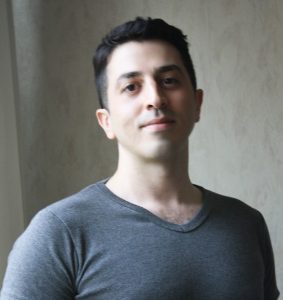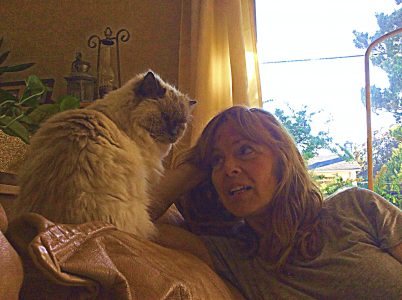By Arash Isapour

The moment I received my admission letter from UVic, I experienced a weird feeling of anxiety, which was a combination of happiness and stress. Right off the bat, I can continue my educational career at the Ph.D. level, but at the same time, this Ph.D. fella felt the duty to come to grips with his academic flaws which are gathered under one title: language.
As a Theatre History student, I am aware that everything I’m dealing with is under the shadow of my English language abilities, including academic and literary writing, reading (not just journals or mathematical articles), speaking (not just at parties or for dating but for being a part of the interaction in a methodology class), and listening (not to Roger Waters’ new album but to a fast speaking English professor whose tongue takes you to the 18th century). And by the way, language is not just language, it is considered as a conveyor of culture.
As you can see, during my first days at UVic, I encountered all the aforementioned challenges at the same time with not even an epsilon of exaggeration. It was not just at the university but everywhere else I went. The neighborhood I am living in looks like a Hobbit village (Oak Bay). Not only were the people smiling at me but also the dogs. In public places, from groceries to banks, from standing at bus stops to sitting in non-stopping buses, people started conversations, and what I gave back was a smile, pretending as if I deeply got what they said, but I did not. The interesting thing was that they were not surprised by seeing me speak like a Martian, in other words like E.T. So, unexpectedly, I saw myself plunged into all these states. My first class was a methodology course in which the sweet, energetic professor wanted us to read books and essays by critical thinkers from Frye to Nietzsche, from Freud to Kristeva, from Hegel to Marx (my beloved), from McLuhan to Fredric Jameson (The reader killer, even for English speaking folks). I not only had to read and grasp all these frameworks but also had to discuss my opinions on them in class, each session. For the first days, the phrase “HOLY SMOKES” kept playing in my mind. I started recording the prof’s voice in class and tried to talk during class, despite the fact that I knew most of my words would make no damn sense, and those people were really looking at me as if they were saying “What in heaven’s name is he talking about!?” My self-esteem started to tremble as “The Earth Trembles” (My favorite Italian Movie).
In this dilemma, I had to choose either the easy way—let it go to any direction it wants to like the wind—or the hard and better way—stand still and choose my own path even if it is against the stream. I might still be a successful Ph.D. student in the arts and humanities if I select the first, but I would definitely be a prosperous and industrious scholar from the beginning if I choose the second. In other words, when you find yourself in the uncomfortable zone, you either choose to surrender and pull back or challenge whatever jams you up. The first would be like a boring love story movie, and the second would be like an unpredictable romantic movie, such as “La La Land.”
So what I did was a bunch of silly sounding stuff that works:
- I asked my sweet landlady to correct me whenever I speak, and she happily accepted to be my home teacher (which is free). And because she is from the 70s, I have learned a lot of nice expressions and am still learning. An example would be what people said when it was the first of May starting with “Hooray, hooray, it’s the first of May . . . . ” As you can see, I am learning a new culture, not just language in a technical way.
- I carry a notebook with me wherever I go to write down whatever I hear from people in public places, see on the walls, hear from movies, TV series, and everything I need to learn while I’m reading something, from a book to an article, even if it is about my own country’s political and social news.
- I make ten sentences with the new words to memorize them.
- I read novels and stories in English that I have always wanted to read but never had time to. Now it has become a constant five-gold-star mandatory pleasure.
- I go to the Centre for Academic Communication at the McPherson Library and try to learn everything I know about writing based on the papers I write. I share whatever I am confused about the language and ask as many questions as I need to ask, even if they make me look like a dummy, which might be cute.
- I try not to meet too many people from my own nation, obliging me to speak English in order to keep the dynamic of my training zone. Remember, the more you are in the training zone, the more you improve in your career.
If you keep doing all these in an organized manner, gradually you will see yourself overcoming barriers. And you move to the next level of improvements. Yeah! It is exactly like a video game. But keep it steady and be patient. Some of these things are not new; you just have to deal with your daily jobs (e.g., reading news, watching movies, going out with friends), but you ought to use only the secondary language for all of these, except in one case: when you are speaking with your parents.
Arash Isapour arrived in Victoria in January 2017 from Tehran. He is a PhD student at UVic’s Phoenix Theatre. Besides being literature-crazy, he is a film buff, in other words a walking movie database.
